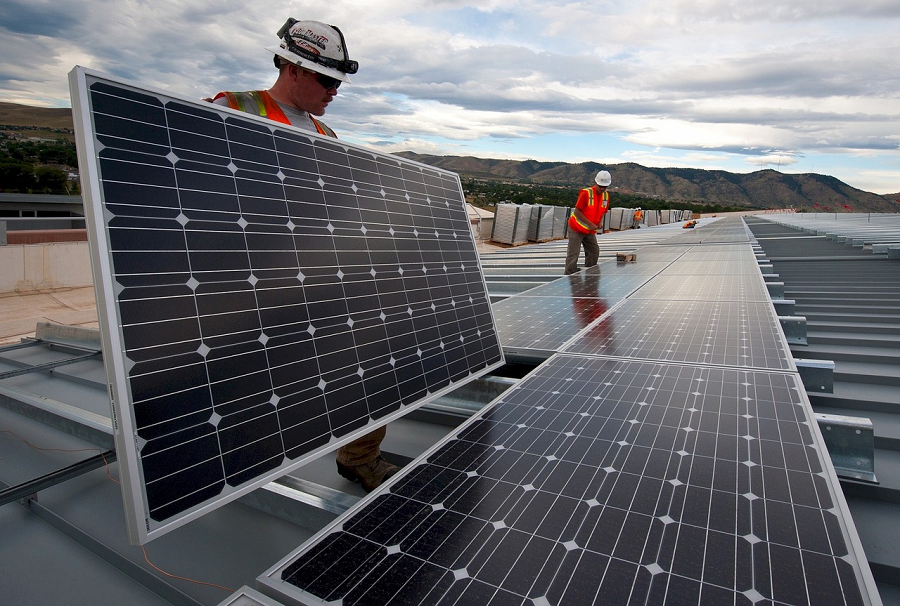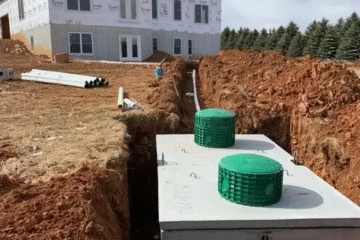Industrial Solar Panels Can Offer Serious Paybacks!

Thanks to generous government grants/tax incentives, falling prices, more efficient panels and the boost it provides for corporate reputation, it is no surprise that many industries are going solar. Idaho – with plenty of rich sunlight – is no different to the rest of the country with industrial/commercial interests realizing that a well-installed solar panel system can offer real long term paybacks. Energy prices are most likely/certainly going to rise in coming years, and a high-quality system out to last well beyond the standard 25 years that most solar panel manufacturers suggest. The rewards can be tremendous – and here is a selection of the best reasons why.
Which Businesses Is Solar Most Suitable For?
Literally, any company can expect a serious long term saving on the installation costs of their solar power system. It is becoming increasingly rare not to see large industrial plants with their rooftops coated in solar panels. Their large buildings allow for hundreds of panels to be installed as a network, with the free energy that they produce headed straight downstairs into the manufacturing workshops.
Smaller businesses can expect just the same returns proportionate to these massive installations. Even just smaller operations can enjoy ecologically friendly energy harvested from the sun directly into their premises. In some ways, these businesses – especially those with lower energy costs anyway – can reap an even higher reward, and it is not unusual for solar to provide 50{6005fe00238ed0ec29dcf4f9ca8b03a9042cdf9ccd9cfcf46fbf772e3d1d5bdd}+ of their needs. Quite a significant saving when it comes to the end of the year accounting!
Agriculture – with their large spread of lands – is also doing very well from solar-generated energy. It can be used to pretty much run irrigation systems for free, and there are a huge amount of other applications too.
Going Green Makes Perfect Business Sense
Reputation matters and it is no secret that many investors, customers, and suppliers are now placing renewable energy towards the top of their agenda. For this reason, there are numerous tax breaks available for various industrial premises who pledge to go solar and cut out a chunk of their net carbon emissions. Grants are also available in Idaho as well as tax breaks for industrial premises who commit to using solar panels – representing in real terms prospective massive financial savings further down the line.
While grid energy in Idaho is presently relatively cheap compared to much of the rest of the country, there is no guarantee that – or the aforementioned grants/tax breaks – are going to last forever. Chances are they will not. Investing in solar power essentially allows companies to exert long term protectionism against the risk of rising energy costs. As grid prices rise, that installation costs will represent an even better value for money.
There is also the advantage of being able to add green certification to your business marketing campaigns. Companies who fit the bill for accreditation for numerous national and state green energy certification are completely able to add that to their corporate image. It could quite realistically make the difference between securing contracts and not.
Long Life – Long Returns
Modern industrial/commercial solar panels are almost twice as efficient compared to those regularly used just a few years ago. This is a trend that is only going to continue, and lifespans for panels themselves are easily 25 years while maintaining near 100{6005fe00238ed0ec29dcf4f9ca8b03a9042cdf9ccd9cfcf46fbf772e3d1d5bdd} efficiency. Needing very little in the way of actual maintenance, with due care and upkeep they will continue to generate that energy well beyond their projected lifespan.
Something that businesses of all sizes ought to also consider is that panels are simple to remove and install providing you have expert service. So if say in 20 years, down the line solar panel technology has doubled in efficiency again (a realistic industry projection) then they are simple to renew. Prices for solar panels in real terms when factoring in their productivity are falling as the government continues to push towards the renewable energy sector.
We do not have a crystal ball, but it is near impossible to imagine a future where solar power incentives are not going to be in place for businesses wishing to adapt – and there is a high likelihood that will be extended even greater towards those who can be considered ‘early adopters’.




